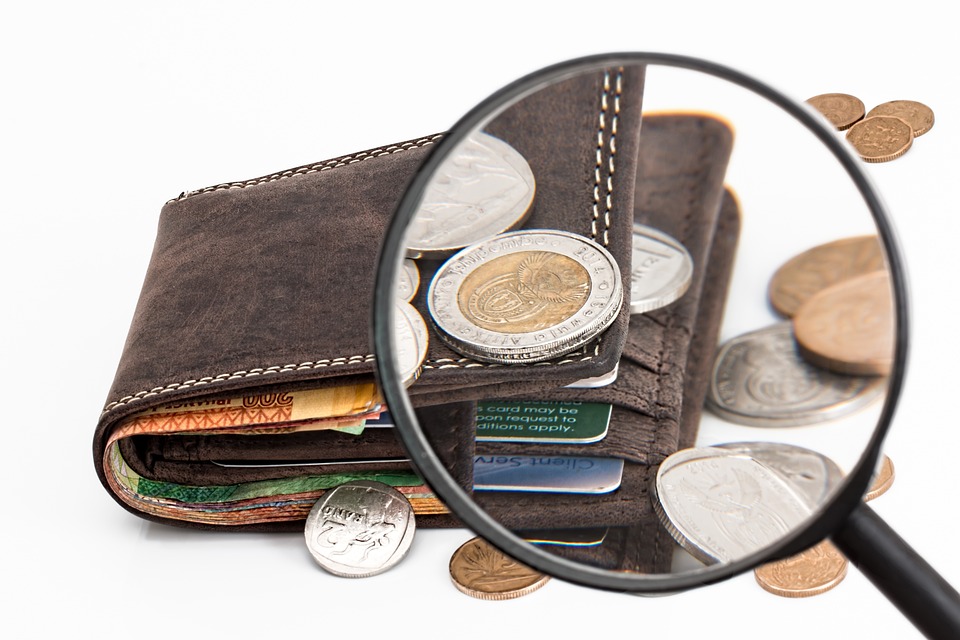
Strategies To Overcome Financial Stress
Introduction
In today’s fast-paced world, financial stress has become a common worry for many people. Having to deal with bills, debts, and unexpected expenses can be hard on our mental and physical health. But with the right strategies and a good attitude, we can get through these problems and achieve financial peace of mind. In this blog post, we’ll talk about effective ways to reduce financial stress and build a healthier relationship with money.
Cultivating Financial Awareness
The first step to getting rid of financial stress is to learn as much as possible about our finances. Start by looking at what you make, what you spend, and what you owe. Make a budget that fits your financial goals and lets you keep track of how much you spend. If you know how much money comes in and how much goes out, you can make better decisions and set more realistic financial goals.
By carefully looking at your finances, you can see where you can cut costs and save money more effectively. Being aware of your finances helps you avoid spending money on things you don’t need and take a more proactive approach to managing your money. Also, knowing where you stand financially gives you a sense of control and confidence, which makes you less worried about your financial future.
Embrace Frugality as a Virtue
Being frugal doesn’t mean you have to go without things. Instead, it’s about making choices that put value and purpose ahead of spending money on things that don’t matter. Cut back on buying things that aren’t necessary and find pleasure in the little things to ease the strain on your finances. Accept the idea of “enough” and put your attention on experiences instead of things.
Frugality gives you a unique chance to rethink your priorities and find out what really makes you happy. When you learn to enjoy the simple things in life, you become more resistant to the pull of materialism and consumerism. By being frugal, you can separate your sense of self-worth from the things you own. This gives you a healthier relationship with money and makes you happier.
Shielding Against Uncertainty
Life is never predictable, and problems with money can come up at any time. Setting up an emergency fund gives you a safety net in hard times so you don’t have to use credit cards or loans for unexpected costs. Try to save enough money for three to six months of living costs in a separate account that is easy to get to.
Not only does an emergency fund give you a financial cushion, but it also gives you peace of mind during rough times. Knowing you have a safety net to fall back on gives you the confidence and strength to deal with problems. Having an emergency fund also keeps you from getting into a cycle of debt when something unexpected happens.
Dismantling Debts
High-interest debts can cause a lot of stress when it comes to money. Pay off your debts in order of importance, starting with the ones that have the highest interest rates. Use the snowball method or the avalanche method, depending on how much money you have, to get going and celebrate small wins along the way.
When you pay off your debts, you not only reduce your financial stress, but you also have more money to spend on other important things in your life. As you pay off your debts, you’ll feel less stress and be able to focus on building a more secure and successful future. Take pride in every debt you pay off because it’s a step toward being debt-free.
Seeking Professional Guidance
It can be hard to figure out how to get around in the complicated world of finance, so it’s smart to get help from a professional. Financial advisors can help you make financial decisions that are in line with your long-term goals and give you personalized strategies and investment advice. Remember that a good way of acting also means knowing when to ask for help.
Financial advisors have a lot of knowledge and experience, which helps you make smart decisions and get the most out of your financial journey. They can point out blind spots in your financial plan, help you find ways to reach your goals, and give you advice when things are unclear. Working with a financial advisor shows that you are careful with your money and want to improve it.
Practicing Mindful Spending
When you spend with care, you buy things that fit with your values and priorities. Before making big purchases, think about how they will help you reach your long-term goals and improve your well-being. By keeping track of where your money goes, you can avoid making decisions on the spot and buy things that will make you happy.
When you practice mindful spending, it makes you think about how you use things. It helps you get closer to your values and helps you choose experiences and investments that improve your life as a whole. As you get your spending in line with your core values, you may find that fewer, well-thought-out purchases bring you more happiness.
Embracing Multiple Streams of Income
When the economy is bad, having only one source of income can make you vulnerable. You might want to look into different ways to make money, like freelancing, investing, or starting a side business. These extra ways to make money not only give you more financial security, but also give you the chance to follow your passions and interests.
Diversifying your sources of income is a strong way to protect yourself from financial stress. Adding to your main income with money from other sources makes you more resilient to changes in the economy and sudden job loss. Also, working on projects that match your interests gives you a sense of fulfillment and satisfaction that goes beyond money.
Financial Education
One of the most important things you can do to get your finances in order is to keep learning about them. To learn more, you can go to workshops, read books, listen to podcasts, and follow reputable financial blogs. The more you know about money, the more confident and in charge you will feel when it comes to managing it.
Learning about money is an investment in yourself that will pay off for the rest of your life. As you learn more about money, you’ll be able to make better decisions, handle complicated financial situations, and take advantage of growth opportunities. If you know more, you will be better able to handle the constantly changing financial world with care and wisdom.
Building Long-Term Investments
When you invest for the long term, your money has a chance to grow and work for you. Think about investing in a variety of things, like stocks, bonds, mutual funds, or real estate. Start contributing early and keep it up and let the power of compounding work its magic.
Long-term investments are a key part of being financially stable and doing well. They let you get the most out of your assets’ potential growth while spreading risk across many different areas. With time and careful saving, you can build up a large nest egg that can help you reach your goals and keep you safe when you retire.
Practice Gratitude and Contentment
Financial security is important, but true happiness comes from appreciating things that have nothing to do with money. Be thankful for what you have and work on improving your relationships, your health, and your own growth. A good way to handle money is to realize that there is more to life than material wealth.
When you practice gratitude and contentment, you shift your attention from what you don’t have to what you do have. When you value the things you can’t touch, like family, health, and your own growth, you feel a deep sense of fulfillment and inner peace. Gratitude is a powerful way to relieve the stress that comes from wanting more and more all the time. It also promotes emotional health and a balanced view of wealth.
Conclusion
Financial stress can be a tough enemy to beat, but it is possible to do so with a good attitude and some careful planning. Learn about money, be frugal, and make it a priority to build a strong financial foundation. Get advice from experts and watch how you spend your money. Remember that true wealth isn’t just about how much money you have in the bank. It’s also about how rich your experiences and relationships are. If you use these tips, you’ll be well on your way to financial peace of mind even in the worst of times.




















